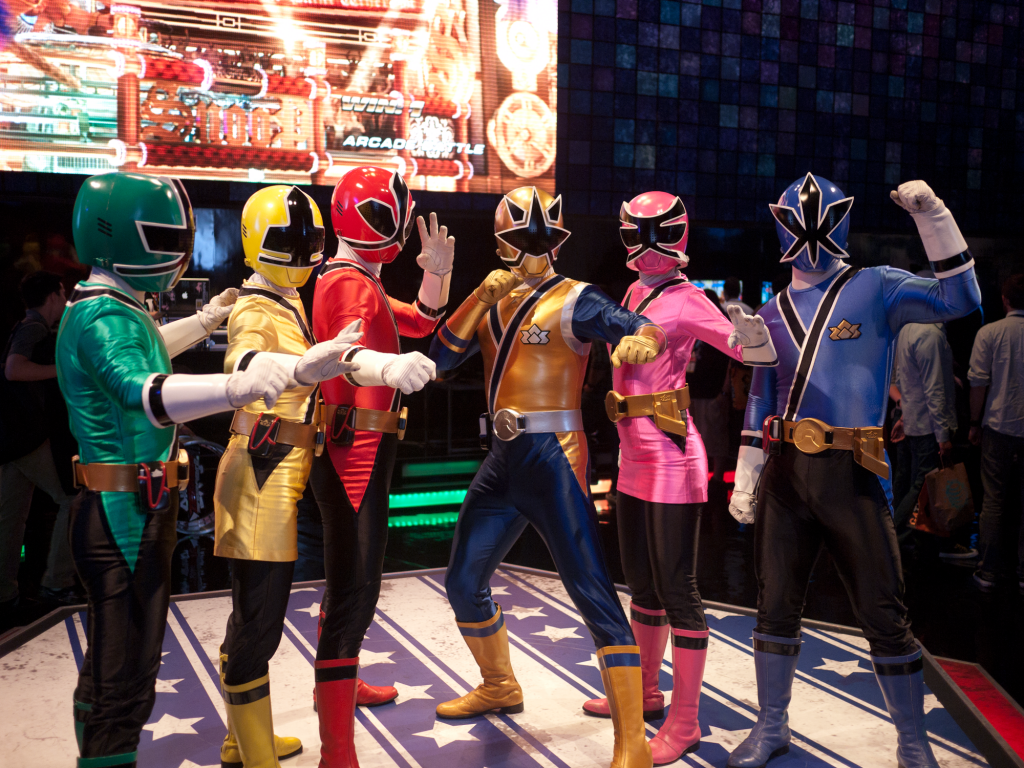You don’t have to have a huge army or a major global economy to have influence way beyond your size.
Despite its high international profile, Israel has always been a somewhat provincial county, with a domestic culture largely unknown to outsiders. The classic pieces of Israeli pop culture, such as the comedy group Ha’Gashash Ha’Hiver, Eretz Israel and Mizrahi music, and the classic bourekas movies, remain ubiquitous in Israel—most Israelis can quote lines from them at will—but almost nowhere else. Everyone in the world knows who Brad Pitt is, but no one outside of Israel knows Yehuda Levi, his rough Israeli equivalent. Indeed, when Yair Lapid suddenly emerged as Israel’s newest political star, the global media proved completely ignorant of a man who had been one of Israel’s most famous media personalities for decades.
But this may be changing, and very quickly. Over the past decade, Israeli films, actors, television shows, celebrities, and music have spread and, more importantly, been embraced around the world. This includes films like Walk on Water, Fill the Void, Ajami, Or, and the cinema of Amos Gitai, which have won international prizes and foreign distribution, often with considerable success. There are television shows like Betipul, remade almost word-for-word as HBO’s In Treatment, and Hatufim, whose American remake Homeland is a runaway success; game and reality shows have also been reproduced and remade in numerous other countries.
Actors like Noa Tishby, Ayelet Zurer, and Mili Avital have appeared in American and European films, become stars, producers, and conduits through which the Israeli film and television industry can reach into foreign markets. Zurer in particular has met with significant Hollywood success, co-starring in Steven Spielberg’s Munich, as well as blockbusters like Man of Steel.
Even more surprisingly, musicians like the heavy metal band Orphaned Land and Mizrahi singer Sarit Hadad have become popular in countries that have historically been ambivalent or violently hostile toward Israel, garnering fans from nations like Turkey and Syria.
While it is too soon to know for sure, it increasingly looks like Israel may well be on the road to becoming a cultural superpower.
The term “cultural superpower” is a somewhat amorphous term, but it roughly refers to a country whose culture has worldwide appeal and significant international popularity. That is to say, a nation that wields a cultural power far out of proportion to its economic or military capabilities.
But even if the term is hard to define, it seems difficult to deny that cultural superpowers exist. They are rarer than military or economic superpowers, and the three sometimes go together, but clearly the phenomenon has been around for centuries. From the Hellenistic empires that spread Greek language, literature, and learning across the known world, to Napoleonic France, which made Enlightenment values, the French language, and the idea of the supremacy of French culture in general ubiquitous from America to Russia, culture has traditionally gone hand in hand with other forms of hegemony. Today, Anglo-American culture reigns supreme, spreading ideas, the English language, and innumerable forms of visual and literary media around the world.
But in our age of the internet and international media of all kinds, a nation need not be a military or economic superpower or much of a power at all, to qualify as a cultural superpower. Jamaica, for example, is a tiny, impoverished nation, but through reggae music and its offshoots, it has influenced culture and fashion around the world, affecting everything from pop music to the drug culture to hairstyles, making dreadlocks a hugely popular countercultural symbol. Qatar is a wealthy but impossibly small Gulf city-state, but through Al Jazeera it is changing the entire world’s perception of the Middle East. South Korea, long a beleaguered client state, is now spreading its unique K-Pop music across Asia and, through social media, as far as Europe and the US. Hong Kong cinema has been rising in popularity for decades, with Hollywood remakes like The Departed paying homage to the small island’s cultural vitality.
But for the past half century, the ultimate example of a cultural superpower that punches above its weight class—and the most instructive example when considering Israel’s potential role—has been Japan, a fact acknowledged by both foreign analysts and, quite proudly, the Japanese themselves. And Japan’s rise to cultural superpower status shows just how beneficial and, indeed, revitalizing such a status can be.
Japan’s rise to cultural preeminence, to the point that it could even compete with Anglo-American culture not only in Asia but in the West itself, was not an easy one. Economically shattered by its defeat in World War II, and with a pacifist constitution imposed by the American occupying forces, Japan had to find new ways to maximize its influence on the world stage. Partially, of course, it turned to the cultivation of economic prosperity. But it did so, for the most part, by adopting the American model of free market capitalism tempered by borrowings from European social democracy. In order to find something uniquely Japanese, and with its long warrior tradition now forbidden to it, Japan turned to its rich aesthetic tradition, merging its traditional cultural and artistic values with Western forms of distribution.

The Japanese TV show Super Sentai was adapted for American audiences as Power Rangers by Haim Saban, an Israeli-American. Depending on how you count, there have been at least 17 different Power Rangers TV series in the U.S. Photo: ze_bear / flickr
Needless to say, it worked. Beginning in the mid-1950s, Japan began to build a global media presence that, for a time, was outdone only by the United States. Films by now-revered directors like Akira Kurosawa and Yasujiro Ozu began to win international prizes, foreign distribution, and the adoration of Western critics. And there were less artistically-minded pictures like Gojira, which under the name Godzilla became both a genre classic and—along with its many sequels and imitations—a staple of late-night “creature features” on American television. The unique style of Japanese animation—often somewhat inaccurately called anime—became wildly popular overseas when it was cut, spliced, and dubbed to suit foreign audiences, showing up on Saturday morning TVs around the world under names like Voltron and Pokémon. Writers like Yukio Mishima, Yasunari Kawabata, and more recently Haruki Murakami captured readers and literary critics in all countries—with Kawabata ultimately winning the Nobel Prize and Murakami considered a serious contender for another win—despite the notorious difficulty of translating the Japanese language. And, in particular, through companies like Nintendo—a venerable firm founded in 1889 to manufacture playing cards—Japan came to completely dominate the absurdly lucrative video game industry for decades. By the 1990s, Japan was widely considered a genuine cultural superpower, the only country whose domestic media output, properly exploited, could seriously challenge Anglo-American cultural hegemony.
Again, the international popularity of its cultural exports brought very tangible benefits to Japan. It raised the country’s profile internationally, aided in its economic reconstruction, and helped protect Japan from losing its unique cultural identity in an age of globalization. Most importantly, however, by giving others a window into the proverbial inner life of the country, it re-humanized Japan and helped redeem it from the stigma of its aggressive, militaristic World War II image. Put simply, it was much harder to hate the Japan of Nintendo games and Transformers toys than the Japan of Pearl Harbor.
So it is reasonable to ask: Is Israel heading down the Japanese path? Will its current cultural renaissance and the rising popularity of its media exports eventually give it the same superpower status enjoyed by Japan? And will Israel enjoy many of the same benefits as a result?
It is certainly possible, though several objections can be raised. First, Israel has always had a certain degree of cultural success internationally, but it has never achieved the critical mass necessary to become a cultural superpower. Writers like A.B. Yehoshua and Amos Oz are much loved overseas, and the legendary S.Y. Agnon received the Nobel Prize in 1966, but this has not led to the kind of international bestsellerdom enjoyed by Murakami, who is not only widely read, but a genuine cultural phenomenon. Singers like Mike Brant and Ofra Haza achieved overseas success, with Brant in particular becoming a kind of European Elvis, and Israel has famously won more than its fair share of Eurovision contests, but these have been anomalies. Before the most recent crop of Israeli actors, only Haim Topol achieved international stardom, and for a relatively brief time. To become a genuine cultural superpower, Israel’s cultural exports would have to garner the kind of momentum they have yet to achieve.

A clip from The Hidden Fortress, a film by Akira Kurosawa that partially inspired Star Wars. Photo: japanesefilmarchive / flickr
There is also a serious practical obstacle. For the most part, to be considered genuinely Israeli, Israel’s media products must be in the Hebrew language, which is spoken by, at best, 6-7 million people worldwide. Of course, few outside Japan speak the Japanese language, but Japan is also home to almost 130 million people, and its cultural products are unique and exotic enough to fascinate foreigners even when translated into other languages. Israeli culture may be too familiar, and its native language too important to its self-image, to achieve this kind of universality.
In addition, in order to become a cultural superpower, a country’s media exports must reflect at least somewhat positively on the culture that creates them, generating the kind of affection that leads to widespread popularity. And for various reasons, many of Israel’s cultural exports do not reflect particularly well on Israeli society. Walk on Water, for example, is a vicious swipe at Israel’s tendency to violence and self-pity, and the Oscar-nominated Waltz with Bashir is a brutal critique of Israel’s conduct during the first Lebanon War. On the other hand, this could prove to be a blessing in disguise. Ironically—and not, perhaps, coincidentally—many of Israel’s most popular cultural exports are those that are most critical of the society that creates them. And, to an extent, tolerance of self-criticism and artistic dissent is seen as a virtue for a democratic society.
Clearly, Israel has a long way to go before it can achieve cultural superpower status. Yet despite all these objections, there is good reason to believe that it may be coming. First, Israel’s current cultural exports are of far higher quality than they have been in the past. Films like Waltz with Bashir and television shows like Betipul are not simply popular and accessible, they are of serious artistic quality, far surpassing their often amateurish predecessors. Second, and more importantly, foreign countries are not simply consuming Israeli culture, but adopting it as their own. Ironically, one of the most telling signs of an emerging cultural superpower is when its cultural exports are not just popular but remade in foreign versions. Indeed, it was when Japanese films like Kurosawa’s Seven Samurai, Yojimbo, and The Hidden Fortress were remade as The Magnificent Seven, A Fistful of Dollars, and—very loosely—Star Wars, that Japanese culture really began to make an impact on a global scale. More recently, the “J-Horror” genre of distinctly Japanese horror films has spawned massively popular remakes like The Ring and The Grudge. In the same fashion, American remakes of Israeli television shows like In Treatment and Homeland indicate that foreign countries have begun to see Israeli culture as something they can not only enjoy but also empathize and identify with.

Orphaned Land, an Israeli band that has become surprisingly popular in the Arab world. Photo: Niv Singer / flickr
Another telling sign is that Israel is clearly becoming something like that vague but essential thing known as “cool.” Once seen as little more than a religiously fraught icon or a Middle Eastern battleground, Israel has recently become an exotic, fascinating, and even glamorous place. Tel Aviv has been feted by The New York Times as something like the new Paris of the Middle East, female Israeli soldiers have become an internationally fetishized sex symbol, and the international paparazzi follow every move the globally adored Israeli fashion model Bar Refaeli makes. Indeed, only weeks ago, the quintessentially cool filmmaker Quentin Tarantino declared that the Israeli crime thriller Big Bad Wolves was his favorite film of the year. All of these are strong indications that, while Israel may not be there yet, momentum is building toward a Japan-style cultural presence on the world stage.
It must be admitted, however, that this raises the question of whether any of this really matters. Isn’t cultural power ultimately more or less meaningless? Aren’t guns and money the only forms of global power that actually influence events? Isn’t the very idea of a “cultural superpower” shallow and naive?
There is, of course, something to these objections. Guns and money are certainly more immediately effective means of leveraging power; and, as noted above, the very term “cultural superpower” is somewhat amorphous and certainly harder to quantify than other forms of power. But, as in the case of Japan, culture does matter. In fact, it matters a very great deal, though it operates much more slowly and psychologically than a gunboat or an aid package.
First, there is something very unique about being a cultural superpower. Unlike other forms of hegemony, people tend to develop very positive feelings about a cultural superpower, without the animus that inevitably comes with military or economic hegemony. Put simply, cultural power fosters fascination and affection rather than resentment. For a country like Israel, which is so widely and irrationally hated by so many around the world, this would be an indispensable asset.

A clip from a trailer for Hatufim, the Israeli predecessor to Homeland. Photo: MosheGoshenVEVO / YouTube
Even more important is the way that cultural power can humanize a country. As in the case of Japan mentioned above, the Israel portrayed in its own cultural exports is very different from the often monstrous caricature portrayed in the foreign media. Without lionizing Israel in a propagandistic way, Israel’s media creations show all sides of the country, from the ordinary and quotidian to the exotic and glamorous, but all of them are eminently, fascinatingly human. By becoming a cultural superpower, Japan was able to show the world that it was a country of human beings, not the then-popular stereotypes of mindless yellow hordes or suicide kamikazes. Were Israel able to do the same, the political benefits would be obvious and very, very real.
But there is no doubt that it won’t happen overnight. It took decades for Japan to become a cultural superpower, and along the way there are always significant obstacles and deep ambivalence among those influenced by negative stereotypes and defamatory propaganda. This was brilliantly illustrated in Stanley Kubrick’s Dr. Strangelove, made near the beginning of Japan’s rise to cultural power, in which Peter Sellers’ British army officer remarks that he was tortured by the Japanese, but “the problem is they make such bloody good cameras.”
As in all great comedy, there is more than a bit of truth in this. It illustrates the fact that, while the global embrace of a particular country’s culture is indeed a process of re-humanization, that process is often excruciatingly slow. But it is a path that is well worth pursuing, because it leads to something quite unique in international relations: To enjoy and even imitate another country’s culture is a bit like inviting a stranger into your home, and eventually realizing that, somehow, they have become something like a friend. And if Israel today needs anything, it needs friends. Ironically, it may be through one of the most benign and amorphous forms of international power that it will succeed in finding them.
![]()
Banner Photo: Christopher Ebdon / flickr






